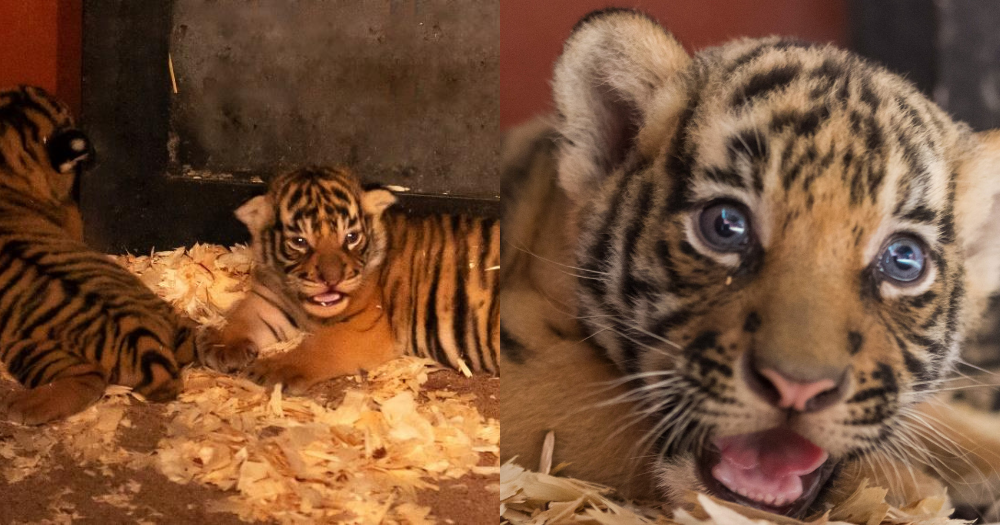Follow us on Telegram for the latest updates: https://t.me/mothershipsg
Following the recent announcement of the birth of Simba, Wildlife Reserves Singapore revealed on Feb. 25 that a pair of tiger cubs were also born last year.
First successful birth of tiger cubs since 1998
The Night Safari welcomed a pair of Malayan tiger cubs on Dec. 27, 2020, WRS said in a press release on Feb. 25, 2021.
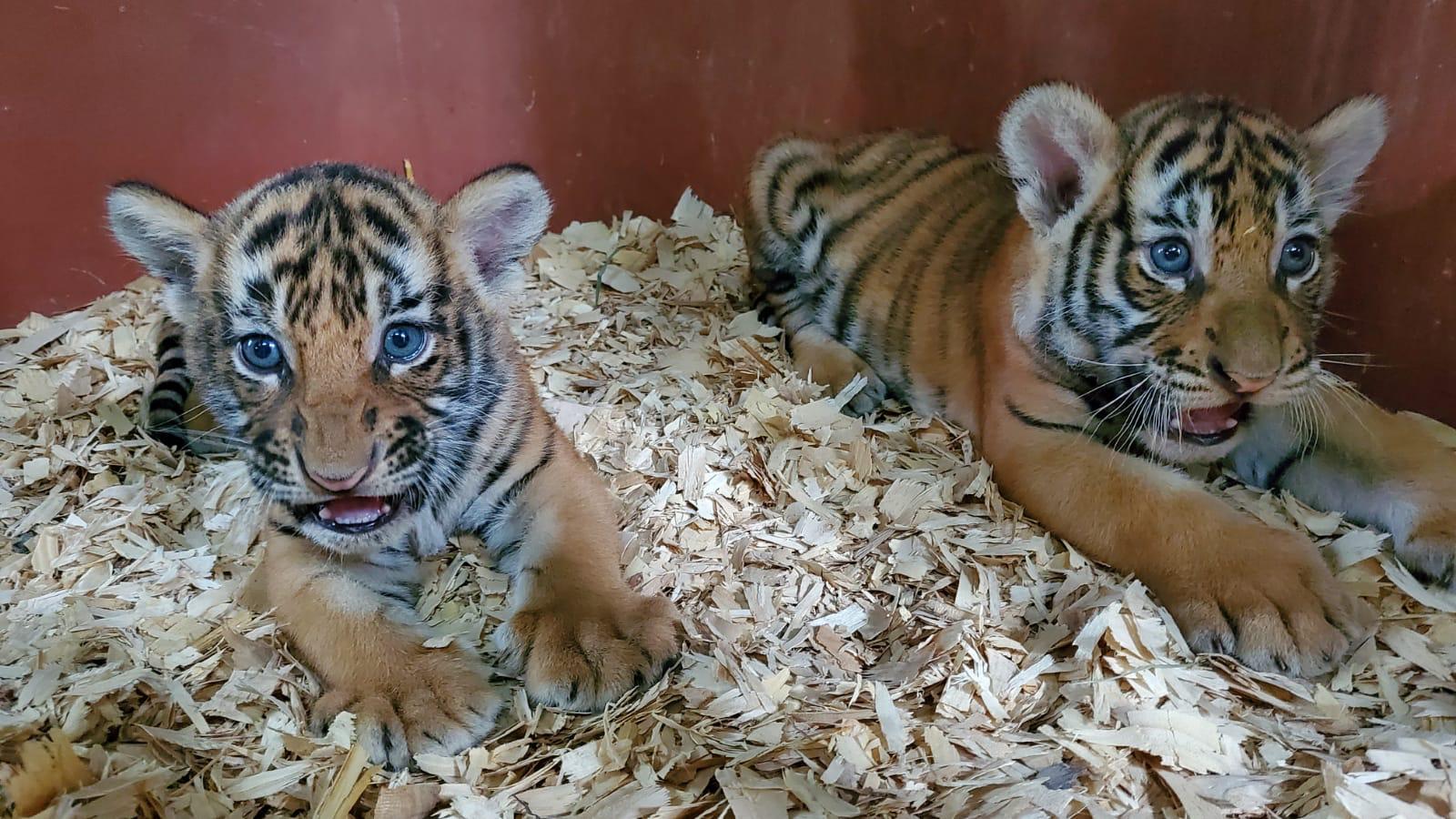 Photo of the tiger cubs, courtesy of WRS.
Photo of the tiger cubs, courtesy of WRS.
This is the first successful birth of the critically endangered feline at WRS since 1998. The parents of the twins are Intan and Bongsu.
Both Intan, now about seven-year-old, and Bongsu, now about nine-year-old, came from Zoo Negara in 2015, WRS shared.
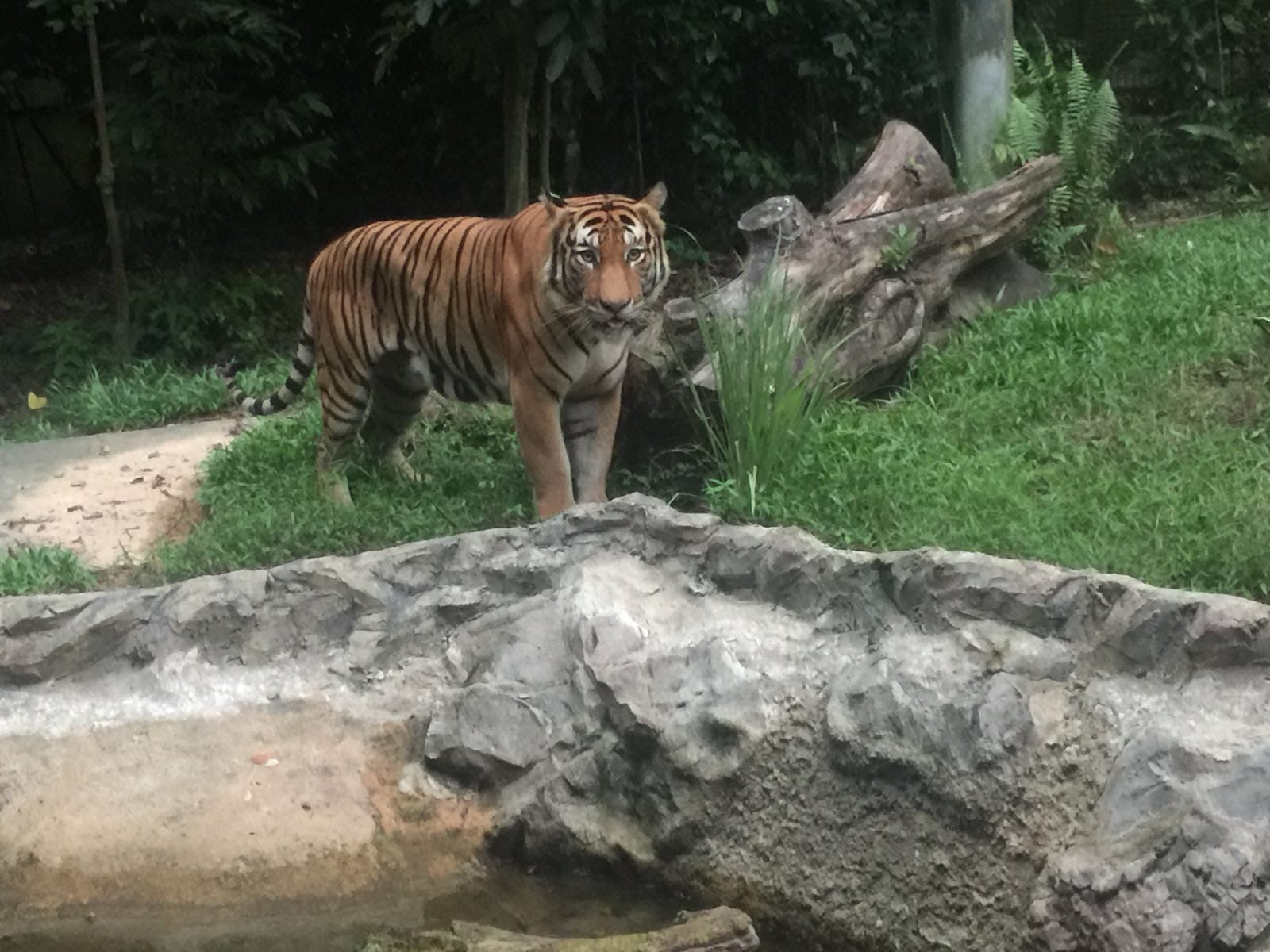 Photo of Bongsu, courtesy of WRS.
Photo of Bongsu, courtesy of WRS.
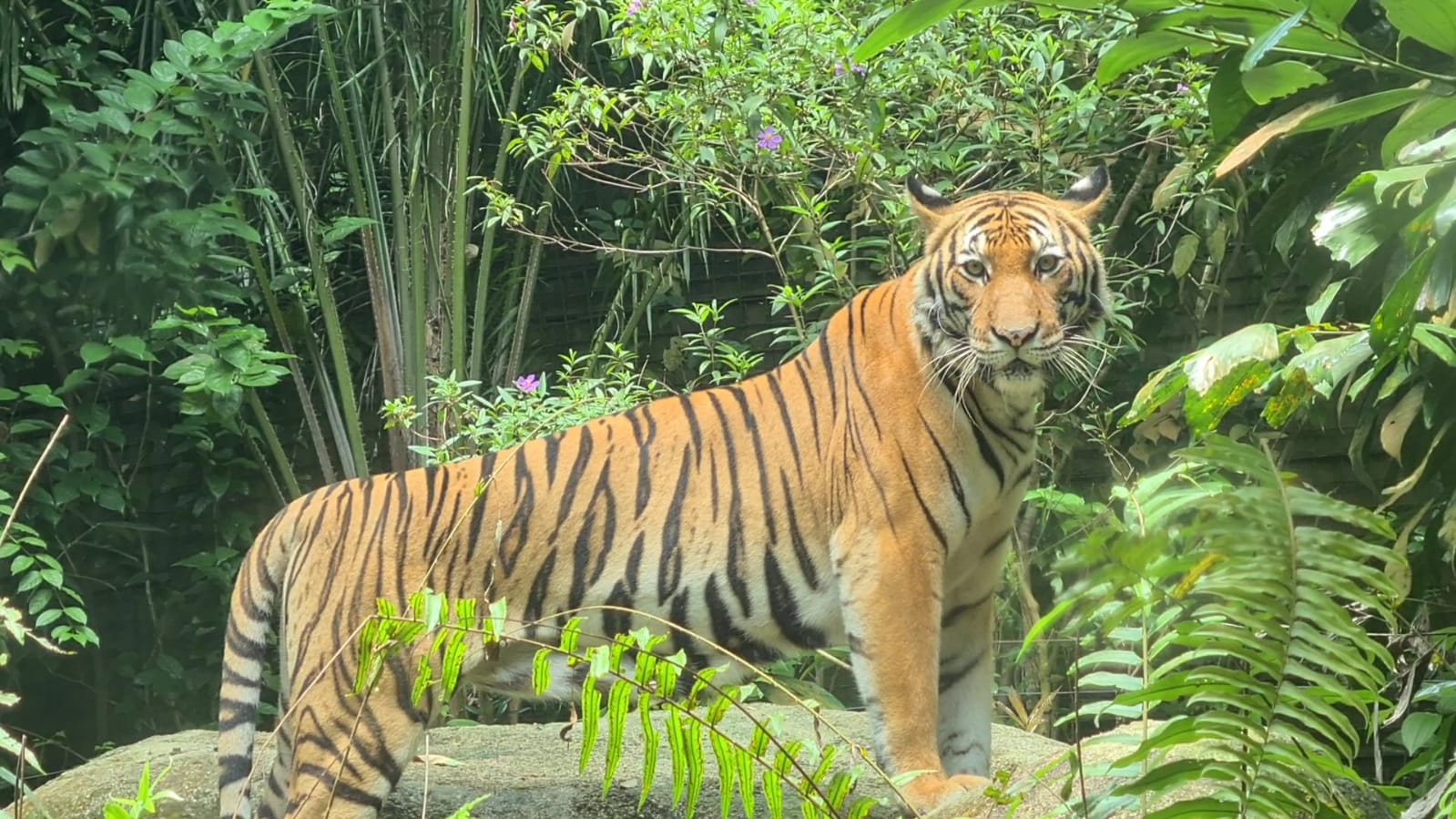 Photo of Intan, courtesy of WRS.
Photo of Intan, courtesy of WRS.
Both cubs are male.
Here's one of them at around one-month-old:
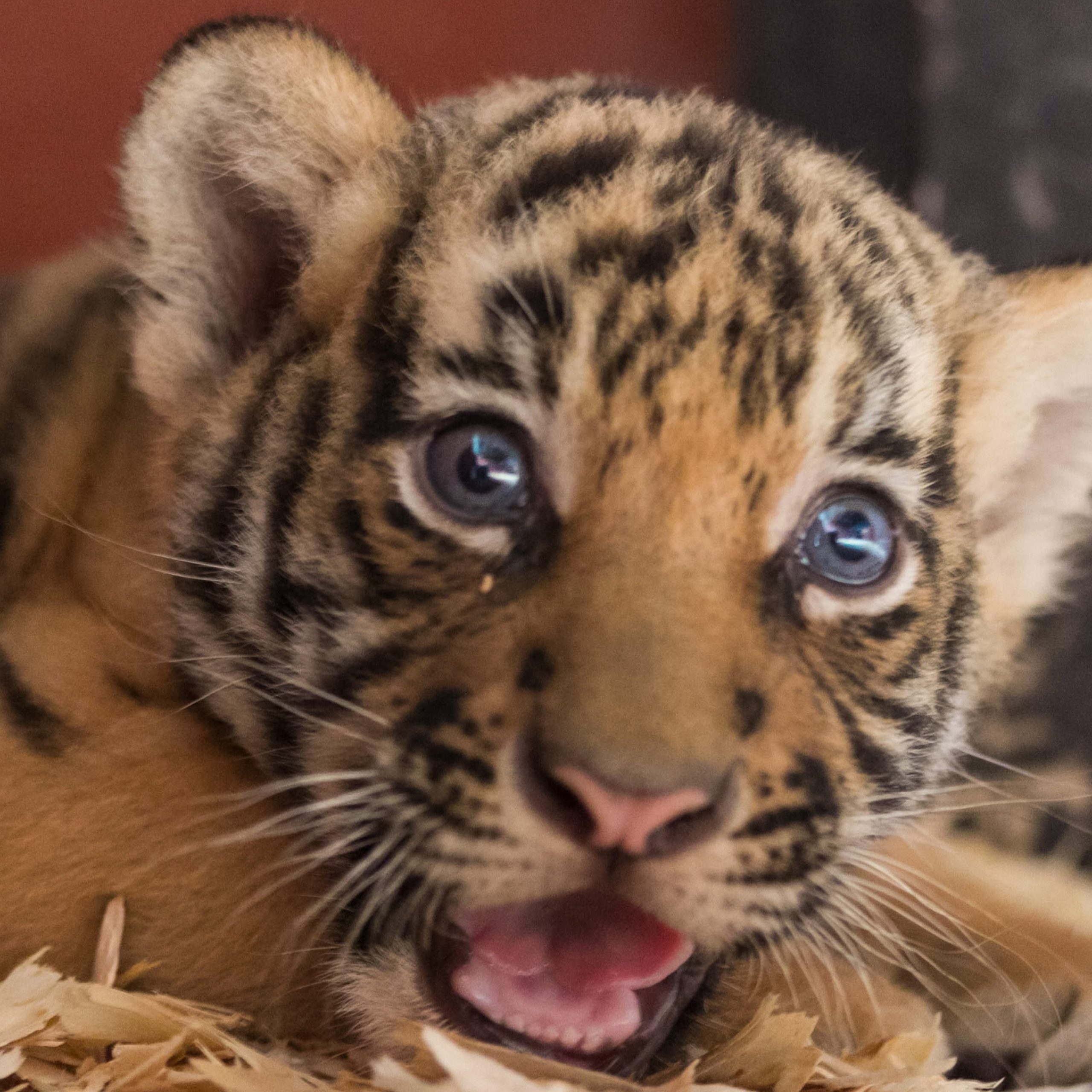 Photo courtesy of WRS.
Photo courtesy of WRS.
Here are the two boys chilling together at around 1.5 months old:
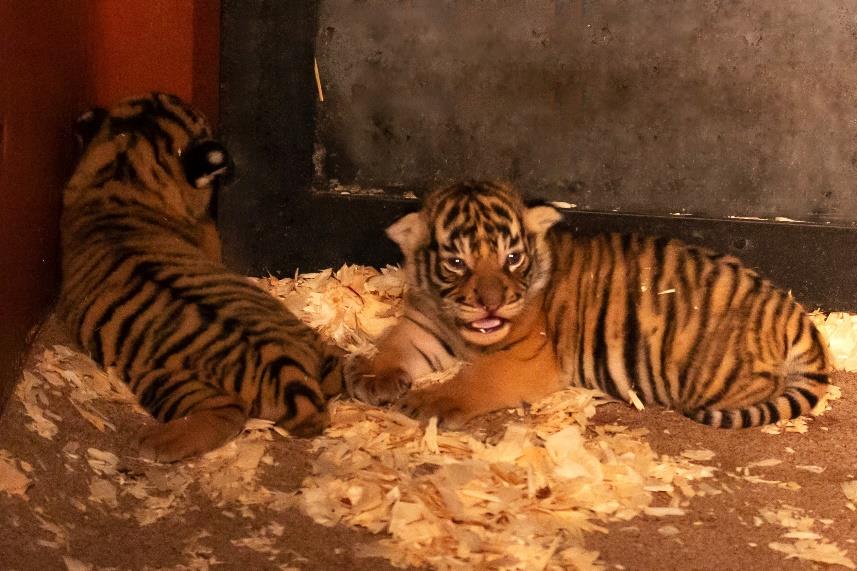 Photo courtesy of WRS.
Photo courtesy of WRS.
Currently at an off-exhibit area
Their mother Intan is currently caring for the twin cubs in an off-exhibit area with close monitoring by the animal care team via closed-circuit cameras.
Intan has been observed to engage in grooming and playing with her cubs.
The cubs have not been given names yet.
With only an estimated population of 150 in the wild, the birth of twin cubs is a significant addition to the population of the endangered sub-species, WRS added.
400 babies in 2020
400 babies across 107 species were born or hatched in the wildlife parks managed by Wildlife Reserves Singapore (WRS) last year.
Among these, 29 species are listed as "threatened" under the International Union for Conservation of Nature's (IUCN) Red List of Threatened Species, said WRS.
Hailing some of these additions as "outstanding achievements in conservation breeding", Deputy CEO and Chief Life Sciences Officer of WRS, Cheng Wen-Haur said that this was made possible because the animal care team "remained focused on providing the best possible care" during this period with Covid-19-related restrictions.
Top photos courtesy of WRS
If you like what you read, follow us on Facebook, Instagram, Twitter and Telegram to get the latest updates.
